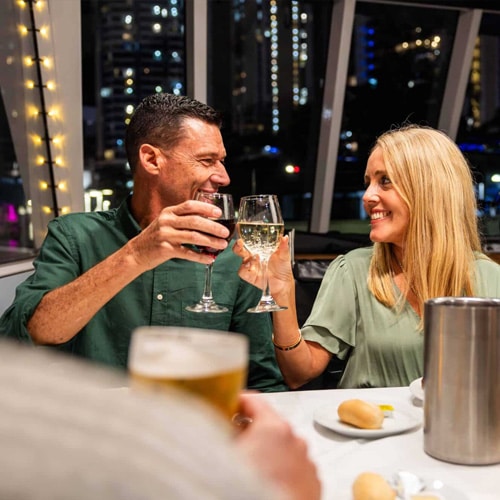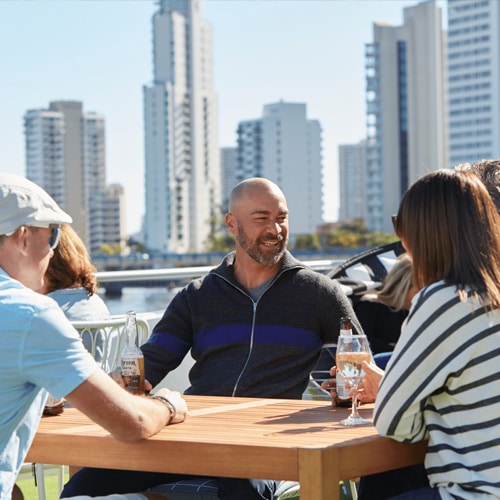Seasickness
With a little advance preparation, everyone can experience a magical day out with the whales.
Seasickness, also known as motion sickness, travel sickness, airsickness or carsickness, may occur in response to certain types of movement such as the rocking of a vessel on the ocean. Seasickness is treatable in the vast majority of individuals.
Medication for Seasickness
If you are concerned about motion sickness, taking medication before your tour can help you enjoy your whale-watching adventure more comfortably. Remember, seasickness medication helps prevent discomfort rather than cure it—follow the instructions carefully for best results. For assistance, please visit your local pharmacy in advance or speak to our friendly staff on the day of your tour.
Other Treatments for Seasickness
Research suggests that ginger can help to ease the symptoms of motion sickness. Ginger is available in raw, crystalised and pill from your pharmacist.
Risk Factors for Seasickness
- Gender: Women are generally more susceptible than men.
- Age: Children (especially between the ages of two and 12) are more susceptible than adults .
- Hormonal factors: Pregnancy, menstrual cycle changes and oral contraceptives.
- Balance disorders: Conditions like vestibular disease and migraines may contribute.
- Previous experience: Prior experience with motion sickness can lead to more severe symptoms in the future.
Symptoms of Seasickness
- Dizziness
- Generally feeling unwell and tired
- Excessive production of saliva
- Headache
- Nausea / vomiting
- Burping
- Sweating
Reducing the Risk of Seasickness
- During motion, look at an earth-fixed object. From the deck, try to look at the horizon or land masses – rather than from inside the cabin.
- Stay on the lower decks where the boat’s centre of gravity is most stable.
- Position yourself where you will experience the least amount of motion; in the centre of a ship.
- The larger the vessel, the less susceptible it is to motion so if possible, try to travel on a large boat rather than a small one.
- Some people find that closing their eyes is the best way to eliminate sensory confusion.
- Avoid alcohol for 24 hours before travelling and during the trip.
- Make sure you have plenty of fresh air. Fumes or smoke can exacerbate symptoms.
- On brief journeys, try not to eat or drink anything.
- On long journeys, eat and drink small amounts often.
- Anxiety worsens symptoms – practice breathing and relaxation techniques.
Where to Find Help
- Your doctor
- Pharmacist
Can't Find What You're Looking For?
Head back to the Accessibility Guide home page, chat with one of our friendly team members on +61 (07) 5539 9299 or info@seaworldcruises.com.au, or check out our Frequently Asked Questions.







